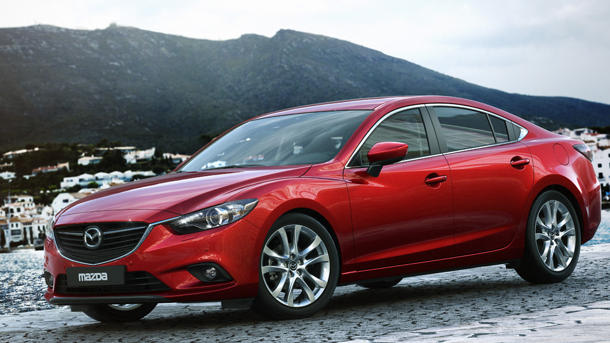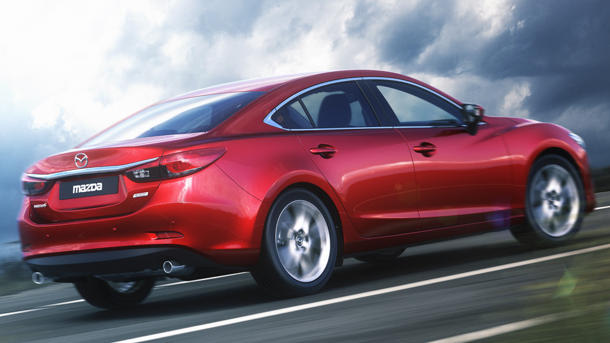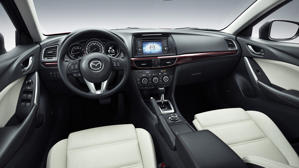Mazda is in a hurry. The Japanese carmaker's financial struggles over the past two years have left it in need of an immediate sales boost, not just at home but in the United States and Europe. Which is why Mazda took to today's Moscow Motor Show to unveil the 2014 Mazda6 midsize sedan, a car that will need to be successful to keep Mazda afloat.
For a type of vehicle bought by millions of Americans every year, midsize sedans don't spur much enthusiasm. They're meant to shuttle commuters and occasionally families quickly, efficiently and reliably, without fail for years on end. With all five of the top-selling sedans either recently redesigned or soon to be, Mazda needed a major upgrade of the Mazda6 -- a model that was about 15 percent too small for Americans, and never sold well on these shores.
Sporting a toned-down version of the styling Mazda's been featuring on its concept cars over the past few years, the new Mazda6 grows to match the dimensions of the class-leading Toyota Camry. As is the trend among the latest generation of sedans, this redesign focused on fuel economy, with Mazda's trick being a capacitor-powered regenerative braking system whose energy can power many of the car's electronics, saving a little fuel.
Mazda says the Moscow mule doesn't reflect the precise specifications of the U.S.-bound Mazda6, but we'd expect similar engine choices -- a 2-liter four-cylinder good for 147 hp, and a new 2.5-liter four-cylinder capable of 189 hp. On the European test cycle, those engines combined with Mazda's 6-speed manual can touch 40 mpg; the U.S. specs will be lower, but Mazda will clearly aim to take the current title of most efficient midsize sedan away from the 2013 Nissan Altima and its 31 mpg combined rating.
Inside, there's a modest freshening, but unlike other automakers Mazda hasn't embraced the knob-and-button-free approach to dashboard controls. Even its speedometer looks like an analog throwback compared to the jumbotron-like displays turning up in new vehicles. Mazda's financial situation requires it to stick to the basics -- and if it does so well enough, more Americans in the same position might give it a look.]


